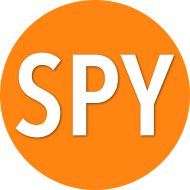Precis: In this week’s A Point of View, BBC Radio 4, David Goodhart argues that the focus on manners in British politics may be a function of the main parties’ programmes being hard to differentiate. He believes this is a result of the impact of the Leave vote, which forced both parties to re-orientate towards the concerns of (his sociological terms) ‘Somewheres’ and away from those of ‘Anywheres’, creating more common ground between them. This he believes has made British politics more democratic. He also notes the Pandemic forced and embrace of localism and domesticity, as well as Somewheres’ ‘security-first’ concern. However, he believes that politics is still in stasis, as voters tend to reject all solutions to problems about which they show concern, and politicians today may be worse at ‘herding cats’ to get things done. He also notes the challenges politicians face getting senior officials to do their bidding, and argues that in addressing this, as well as cajoling voters into enabling the levers of power, ‘political manners’ may be more important than we think.
To make it more accessible, I have transcribed this audio opinion piece – using Otter.ai – and edited, structured and highlighted it. This way one can read and/or listen to it.
As more and more idea-led media we consume is consumed in audio or audio-visual format, we need better ways to parse, consume, review and reflect on it – and share it. I have for a long time noted quotes from audio or audio-visual media. I share these quote on social media, and use them in my writing and lectures. Inasmuch as it is their role to inform and educate the public, the BBC and other broadcasters should be doing this more, but they don’t. BBC Radio 4 used to publish a transcript of its Analysis show, for instance:
Analysis, BBC Radio 4: Going to the Blogs?, Kenan Malik, March 31st, 2005
but no longer does, presumably as a result of resource constraints – or perhaps as it no longer sees itself as the leader in public intellectual discourse and pedagogy? I wonder if there might be a collaborative project to more comprehensively document this kind of broadcasting, perhaps even in conjunction with those being broadcast, and the broadcasters themselves. Of course there are services working in this area, such as Listen Notes and these need to be supported and complemented.
This is part of my work on #CollaborativeResearch – see On how we Research, Learn, and Create meaning
{Roam}
